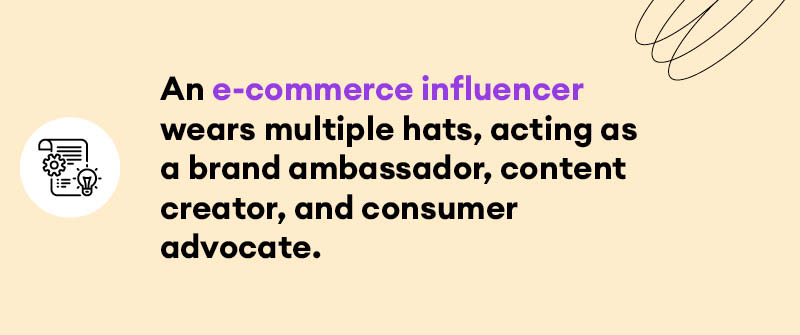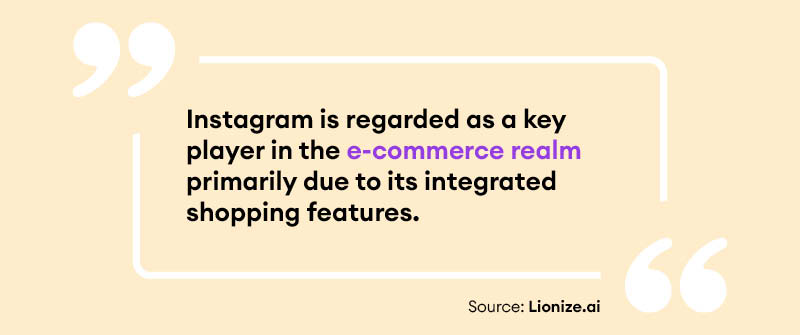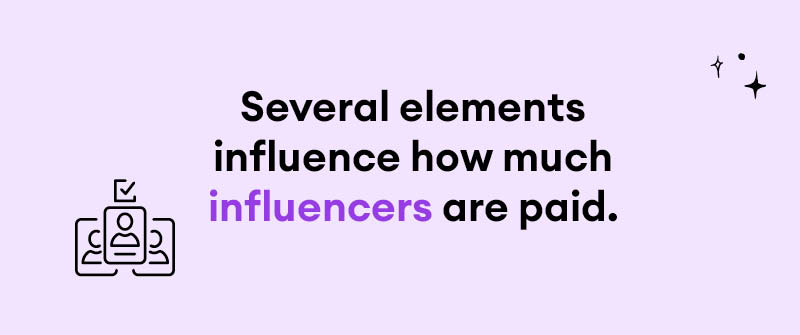The Lion's Den
What Is An E-Commerce Influencer?
25 Influencer Marketing

What Is A Commerce Influencer?
Definition of a Commerce Influencer
In the dynamic realm of online business, an e-commerce influencer has emerged as a pivotal player. These individuals possess a noteworthy presence on digital platforms, using their influence to drive e-commerce engagement and sales. An E-Commerce influencer effectively bridges the gap between brands and consumers, fostering trust and increasing brand visibility through authentic and relatable content. Influencer marketing statistics reveal that businesses leveraging influencer collaborations see significantly higher engagement and conversion rates, making these partnerships particularly effective. Influencer collaborations are especially vital for an e-commerce business, enhancing visibility, driving traffic, and ultimately boosting sales.
Roles and Responsibilities
An e-commerce influencer wears multiple hats, acting as a brand ambassador, content creator, and consumer advocate. Their primary responsibility is to showcase products or services in a compelling manner that resonates with their audience. This involves creating visually appealing and informative content such as reviews, tutorials, and lifestyle integrations, which can sway consumer purchasing decisions.
Influencer marketing efforts play a crucial role in building brand awareness and driving sales for e-commerce businesses.

Impact of Influencers in Ecommerce Influencer Marketing
The significance of e-commerce influencer marketing in the e-commerce landscape cannot be overstated. Influencers are known to amplify brand messages, reaching niche audiences that traditional marketing strategies often miss. Through their endorsements, they provide brands with validation and credibility, which are essential for customer trust. As a result, brands tapping into this powerful marketing strategy see not only heightened engagement but also increased conversion rates, making influencers indispensable allies in e-commerce success.
What Does It Mean When Someone Does E-commerce?
The concept of e-commerce represents a transformative shift in the way businesses operate and how consumers engage in purchasing. At its core, e-commerce, or electronic commerce, is the practice of buying and selling goods and services over the Internet. This digital mode of commerce enables transactions between individuals and businesses without the geographical limitations traditionally faced.
Several types of e-commerce models exist and illustrate the broad scope this digital marketplace covers. Primary models include Business-to-Consumer (B2C), where businesses sell directly to consumers, and Business-to-Business (B2B), where transactions occur between businesses. There’s also Consumer-to-Consumer (C2C), often facilitated by platforms like eBay, and Consumer-to-Business (C2B), where individuals offer products or services to businesses.
For individuals and businesses aiming to engage in e-commerce, it involves more than just setting up an online store. It requires a strategic understanding of digital consumer behavior, adept use of online marketing strategies, and the integration of user-friendly platforms to facilitate seamless transactions. From setting up secure payment gateways to ensuring timely delivery of products, the scope of e-commerce activities encompasses an entire business ecosystem powered by technology. An effective e-commerce influencer marketing strategy is also essential for leveraging social media influence to boost online sales.
Is Instagram Considered E-commerce on Social Media Platforms?
Role of Instagram in E-commerce
Instagram has transformed from a simple photo-sharing app into a robust platform for e-commerce. It offers businesses a unique opportunity to market products directly to consumers through compelling visual content. With over a billion active users, Instagram provides an extensive reach, making it a pivotal platform in the digital marketing toolkit. An influencer marketing platform can further enhance this by helping brands manage their relationships and campaigns with influencers, from discovery to analytics.
The engagement rate on Instagram surpasses other social media platforms, especially for e-commerce. Brands can use various features like stories, reels, and posts to showcase their products creatively, driving consumer interest and increasing potential sales. Additionally, the platform’s ability to target specific demographics makes it easier for businesses to find their ideal audience.
Instagram Features for E-commerce
Instagram is regarded as a key player in the e-commerce realm primarily due to its integrated shopping features. Shoppable posts, product tags, and the dedicated shopping tab allow customers to browse and purchase products without leaving the app, offering a seamless shopping experience. This integration not only enhances user convenience but significantly boosts conversion rates.
Moreover, Instagram’s business tools provide insights that help brands understand their audience better. Metrics such as engagement rates, impressions, and click-through rates are essential for tailoring marketing strategies to maximize impact. These features empower businesses to refine their approach, making informed decisions that drive growth. Incorporating advanced technology and innovative approaches in influencer marketing strategies can further enhance campaign effectiveness and brand visibility.

Case Studies of Successful E-commerce on Instagram
Numerous brands have leveraged Instagram for remarkable success in e-commerce. For instance, fashion brands frequently utilize influencer collaborations, combining engaging content with strategic partnerships to drive sales. Another example is small artisanal businesses that tap into niche markets by using Instagram stories and swipe-up links to directly connect with potential buyers.
Brands like Glossier have thrived by creating aesthetically pleasing Instagram feeds that resonate with their target audience, making their products highly desirable. This strategy not only boosts sales but also hones brand loyalty by engaging with customers on a personal level. These case studies reflect Instagram’s potent role in shaping modern e-commerce. A well-executed influencer marketing campaign can significantly enhance brand awareness and drive conversions.
What Are Influencers Paid For?
Understanding Influencer Payments
Influencers are pivotal in modern marketing strategies, driving brand engagement and conversions through authentic connections with their audiences. Understanding what influencers are paid for is essential for orchestrating successful influencer marketing campaigns. Strategically planned and executed influencer campaigns can significantly enhance brand visibility and sales, especially when aligned with specific events or seasons.
Forms of Compensation for Influencers
Influencers can be compensated in various ways. The most common form of payment is through sponsored content fees, where brands pay influencers to create posts or videos that showcase products and services. Influencers may also receive free products, discounts, or exclusive experiences, providing non-monetary value that complements direct payments. Partnering with micro-influencers, who have smaller follower counts but highly engaged and loyal audiences, can lead to stronger brand connections, better ROI, and higher engagement rates.
Some brands implement performance-based compensation models, where influencers earn a portion of sales generated through their promotional efforts. This approach incentivizes influencers to create more engaging and impactful content, aligning their interests with brand goals.
Factors Affecting Influencer Payment and Marketing Strategies
Several elements influence how much influencers are paid. The primary considerations include the influencer’s follower count, engagement rate, and the niche they operate within. Influencers with a highly engaged audience or those working in niche markets might command higher rates due to their ability to drive targeted actions. Collaborating with niche influencers can be particularly advantageous as they connect with targeted audiences through authentic and relatable content, fostering greater trust and engagement.
The type of content also affects payment. High-production content like polished videos or in-depth blog posts typically demands higher compensation than a single social media post. Furthermore, long-term partnerships might offer influencers more consistent income and enhanced compensation packages.

Measuring Influencer Impact, ROI, and Target Audience
Assessing the return on investment (ROI) of influencer collaborations is crucial for determining their value. Brands need to measure the effectiveness of campaigns through metrics such as engagement rates, conversions, and sentiment analysis.
Utilizing analytical tools and platforms can help track these metrics, allowing brands to adjust strategies for better outcomes. By understanding and leveraging the full scope of influencer impact, marketers can ensure their investments yield substantial returns. Influencer marketing campaigns play a vital role in driving success for e-commerce businesses by establishing clear goals, selecting appropriate platforms, and ensuring authentic collaboration with influencers.
Unlock new possibilities for your brand’s influencer marketing initiatives with Lionize. Our AI-powered platform takes the burden out of sourcing, managing, and paying influencers, connecting you effortlessly with creators who match your brand’s ethos. Start your marketing transformation today and discover the ideal partners with Lionize.




















